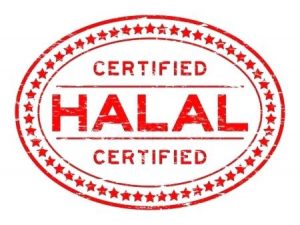 TO MAINTAIN the momentum in the global halal ecosystem and further economic cooperation with Indonesia, the Department of Trade and Industry (DTI) held an online event to gain a better understanding of Indonesia’s halal regulations and engage partner government agencies in Indonesia for a possible mutual economic cooperation between the two markets.
TO MAINTAIN the momentum in the global halal ecosystem and further economic cooperation with Indonesia, the Department of Trade and Industry (DTI) held an online event to gain a better understanding of Indonesia’s halal regulations and engage partner government agencies in Indonesia for a possible mutual economic cooperation between the two markets.
The webinar tackled various government to government (G2G) and business to government (B2G) mechanisms as options for international cooperation.
Head of the Indonesian Halal Product Assurance Agency professor IR Sukoso discussed the export and import regulations of Indonesia under the Law No. 33 of 2014 and stressed that the Indonesian government welcomes the opportunity to explore areas of cooperation with the Philippines in the promotion of halal-certified products and services.
DTI Undersecretary for the Trade Promotion Group Adulgani Macatoman affirmed that Indonesia remains an important trade partner of the Philippines, with a long history of cooperation in various sectors.
“Although we have significant value of trade on food with Indonesia, we want to maximize it even more by exploring opportunities in halal. Indonesia is home to more than 200 million people, and the first requirement of the consumers is halal especially for food, pharmaceuticals, cosmetics and personal care products,” he said.
G2G mechanism
DTI Export Marketing Bureau director Senen Perlada stressed that the G2G mechanism is the most effective way.
“The most straightforward way to solve halal certification issues is to have a government to government agreement. We really need to capacitate our certifying bodies, so that they are in line with the bilateral agreements with the countries we are dealing with,” he explained.
Jakarta-based Philippine commercial attachè Jeremiah Reyes echoed the need to enter into a Memorandum of Understanding with Indonesia.
“We have been in talks with Prof. Sukoso a few times regarding the initial draft that is now submitted for review to the Philippine Halal Export Board. Consultations with stakeholders are ongoing, particularly with the private sector because at the end of the day, we don’t want the process to be burdensome to any of us, especially to the private sector,” he said.
Indonesia is the world’s largest Muslim country with more than 260 million consumers and where 87.2 percent of its total population practice the Islamic faith. In October 2019, the Indonesian Ministry of Religious Affairs issued the regulation on the implementation of Halal Product Assurance, two days before the Halal Law (Law 33/2014) came into effect on Oct. 17, 2019.
With 244 articles, this massive ministerial regulation serves as the technical legal basis of halal product assurance comprising a wide range of regulations including halal application procedures, examination agency registration, labelling, administrative sanctions, renewal mechanisms and international cooperation, among others. Prior to this, under Indonesia’s Law 33/2014 passed in October 2014, halal certification was on a voluntary basis.
Top halal exports
Perlada said top export sectors to halal markets are fresh fruits and nuts, bread, pastry, cereals and milk, sauces and seasoning, animal and vegetable fats, and oil, both fresh and processed foods.
“In the future we would like to see a notable export figure for halal poultry and meat and once our halal hubs are in place, we will have slaughterhouses and laboratories for halal. We are quite optimistic that this growth will be realized in the very near future,” he said.
Perlada also dispelled traditional thinking that halal is only for food products.
“Halal is also about non-food that includes very, very big items in pharmaceutical, personal care and cosmetics, medical devices and modest Islamic fashion. It’s not just goods. It’s also services,” he said.
Perlada said the leading countries in halal are the Asean-4 comprising Indonesia, Brunei, Malaysia and Singapore; the Gulf Cooperation Council countries of Saudi Arabia, Kuwait, United Arab Emirates, Qatar, Bahrain and Oman; other Middle East countries such as Iraq, Turkey and Egypt, as well as other Asian countries such as China and Iran.
Certification
To seize these huge global markets, Roberto Amores, Director for Agriculture and Fishery Committee of the Philippine Chamber of Commerce and Industry Amores, said certification is “essential.”
“I believe that having an established and credible standard, having an established certification process will elevate our chances in penetrating the market even at par with the other halal certifiers and exporters in the global market,” he said.
(PR, PHILEXPORT NEWS AND FEATURES)



